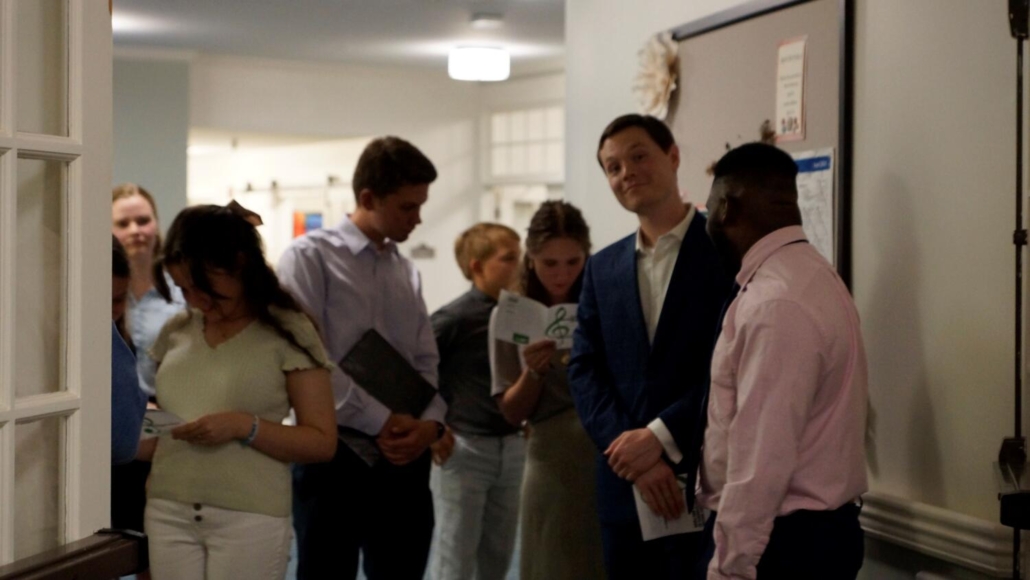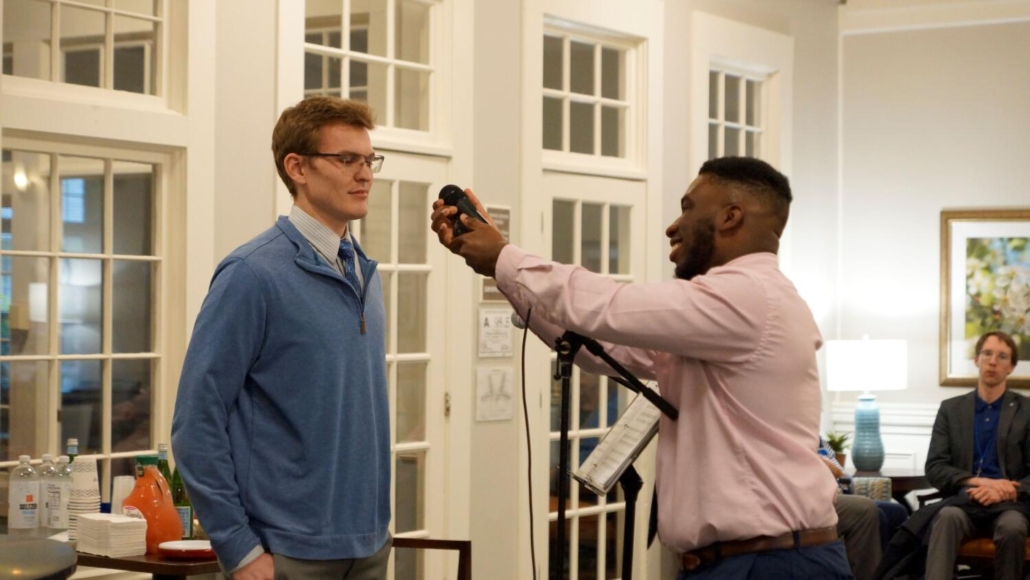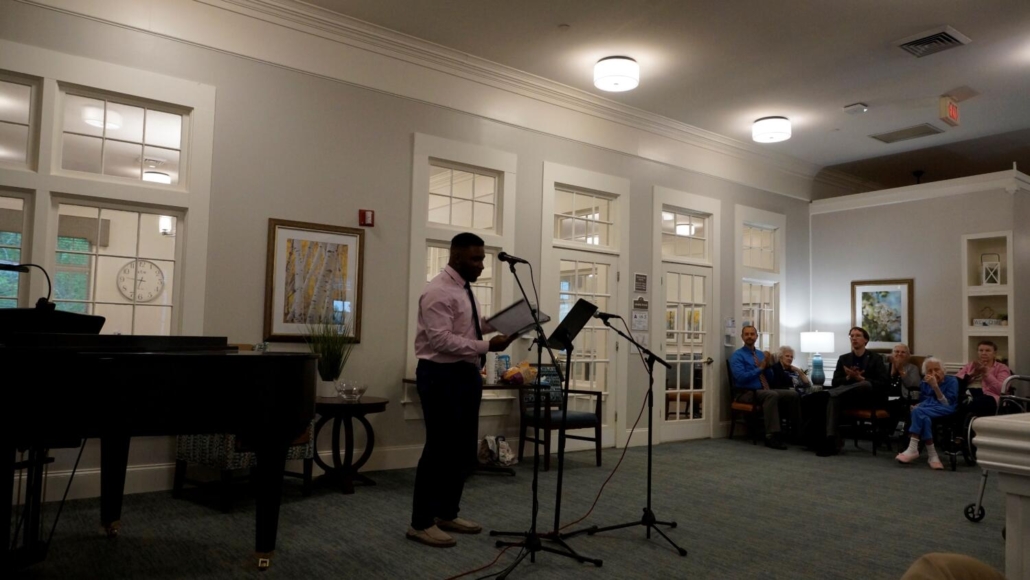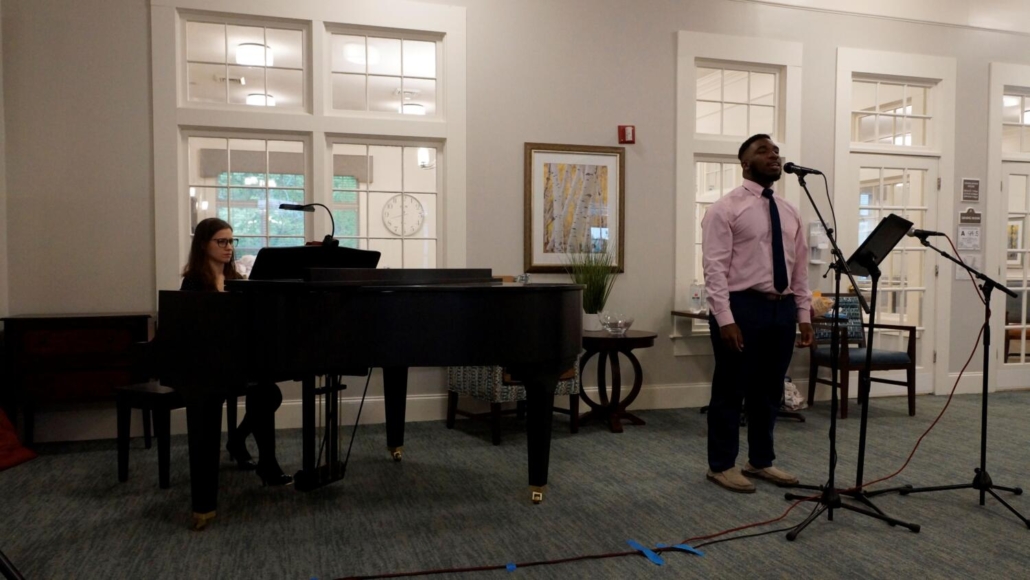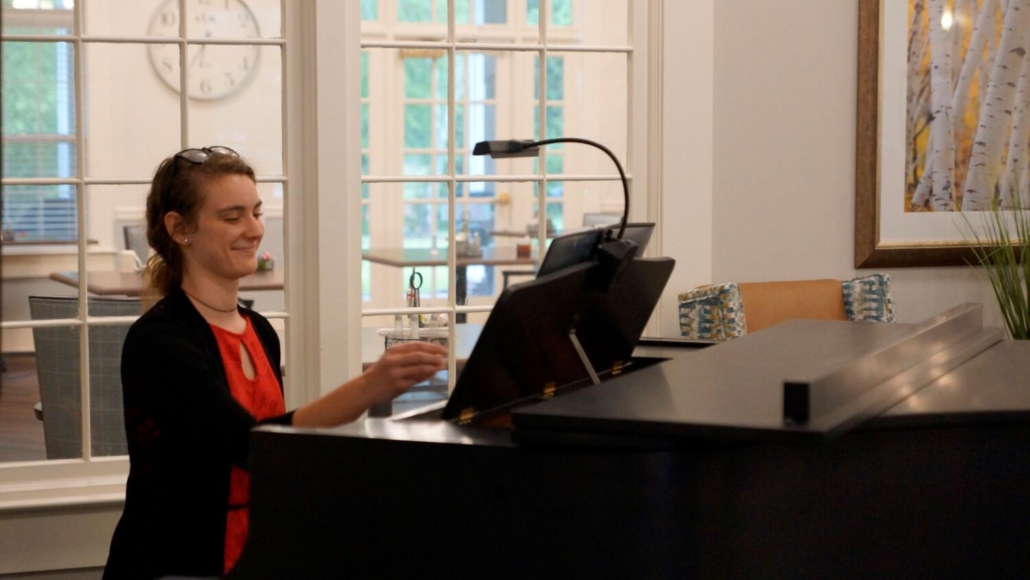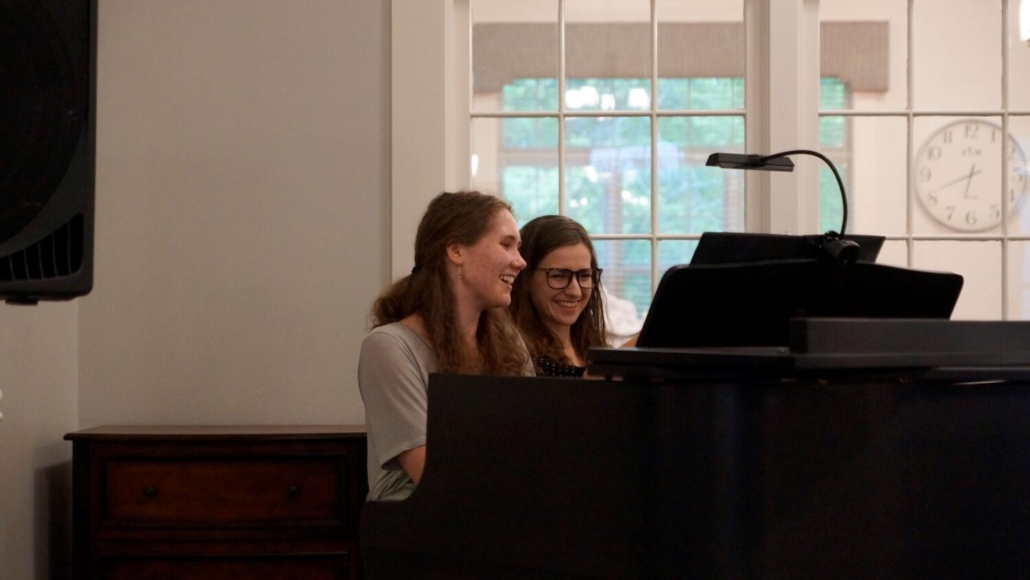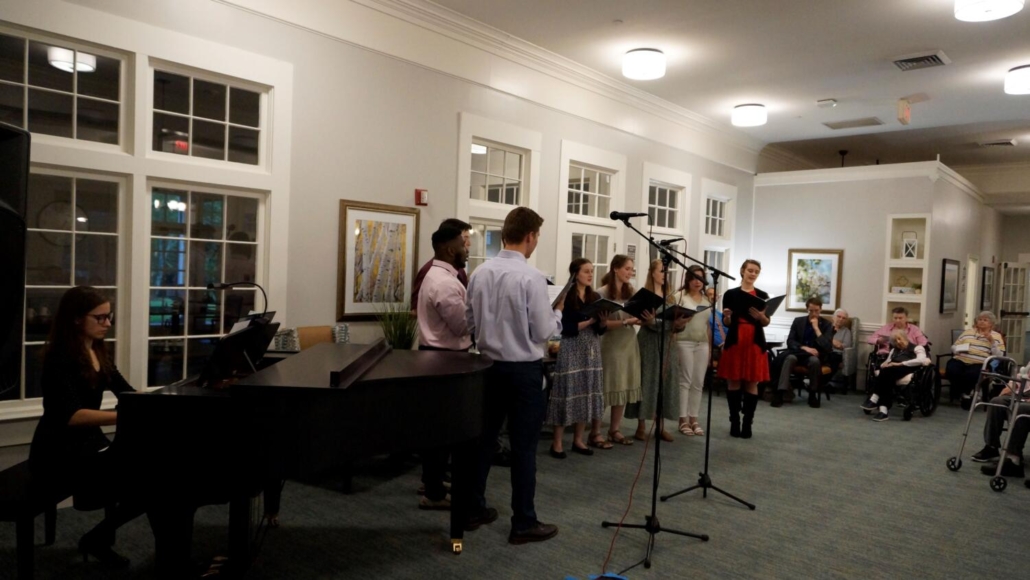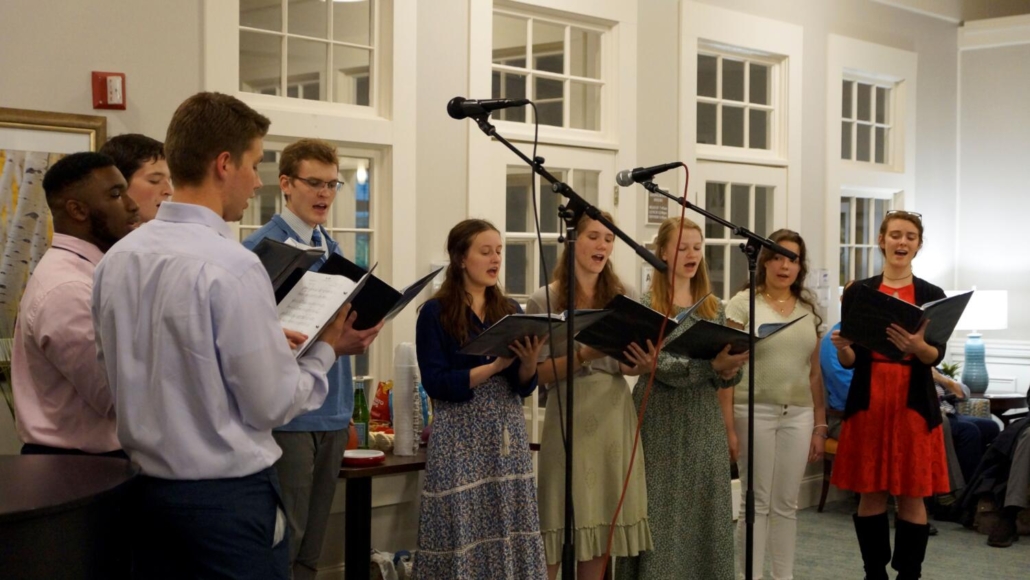The Moon, Mars, and Beyond: God’s Awesome Universe
Author: Kaleb Johnson | Student, Living Education – Charlotte, 2022-23
Estimated reading time: 7 min.
Smartphone Users, Try our mobile friendly version!
The Living Education students heard a presentation from Dr. Roedolph Opperman, a systems engineer who worked on NASA’s Perseverance Mars Rover.
In his forum, Dr. Opperman covered the accomplishments of mankind in exploring space, how the human body reacts to space, and the vastness of God’s creation. This summary gives a glimpse into Dr. Opperman’s fascinating forum.
What Has Mankind Done?
Over 50 years ago, mankind slipped the surly bonds of Earth and set foot upon the moon. From there, man shifted his focus to Mars, flying numerous missions to the Red Planet and landing robotic explorers on its surface. These accomplishments required tremendous effort, thousands of people, and brilliant minds. Dr. Opperman showed a video titled “7 minutes of Terror” that depicts the intense challenge the rover Curiosity faced when landing on Mars. There were seven minutes from the moment the spacecraft carrying Curiosity entered the atmosphere to the moment the rover touched the surface of Mars, and it was an extremely complicated seven minutes, involving parachutes, rockets, and precise maneuvering. And it all had to happen without any human control. It takes 14 minutes for a signal to get from Mars to Earth. The Rover was on Mars for seven minutes before NASA even knew it had entered the atmosphere. All they could do was hope for its successful landing.
Curiosity survived its automated landing, and so did Perseverance, a rover almost identical to Curiosity (see actual footage of Perseverance landing on Mars). The Perseverance Rover also carried with it a little partner robot: Ingenuity. This explorer is not a rover, but essentially a remote-controlled helicopter. It is the first powered aircraft to fly on Mars! Since 2021, Perseverance has taken over 300,000 pictures of Mars, traveled 7 miles, and taken 43 soil samples. Ingenuity has flown over 50 times and now helps scout locations for Perseverance to explore.

Perseverance and Ingenuity represent the latest in NASAs missions to Mars and are major success stories. Dr. Opperman himself worked on the Perseverance mission as a member of the fault protection team. But not every mission succeeds. All countries combined have attempted 43 missions to Mars, and less than half were successful. While the Perseverance mission shows the progress mankind’s space ventures have made, man has more ambitious plans for the future, like colonizing the moon and even Mars.
Human Beings Are Not Designed for Space
The Artemis program currently aims to put man back on the moon by 2025, hoping to pave the way for “colonization” of the lunar land. But Dr. Opperman emphasized the critical fact that the human body is simply not suited for space. He explained that the lack of gravity creates issues for fluid circulation and leads to muscle atrophy and bone mass loss, even with intense exercise.
And there are bigger issues than zero-gravity, like radiation. Dr. Opperman explained that sun or intergalactic radiation is a major threat to humans, and there is simply no good solution for protection! In fact, the previous Apollo missions were miracles themselves as they all occurred during periods of low radiation. But months of space travel would make a lethal radiation event a statistical inevitability. As Dr. Opperman said, “We are mere fleshly human beings; we are ill-equipped to explore the universe in our current state.”
What Has God Done?
Mankind has walked on the moon and sent robots to Mars, yet our accomplishments are nothing compared to God’s. “Our best efforts can barely scratch the surface of exploring this incredible universe that an awesome Creator made by merely saying the word,” said Dr. Opperman. The fact is that God created everything, including the sun, the earth, and the universe as a whole, and mankind’s achievements are comparatively tiny.
A World Made Just for Us
Planet Earth is a massive miracle, mystifying skeptics. It is exactly the right distance from the sun—in the “Goldilocks zone”—and this makes life possible. Here, water in all three phases and mild temperatures and conditions allow for complex molecules. Additionally, Earth has an axis tilt that makes seasons, an ozone layer that protects from ultraviolet radiation, and a strong magnetic field. Even the other planets in our solar system, like Jupiter, protect Earth from comets and asteroids. And the Earth is only the beginning of God’s awesome creation.
How Big Is the Universe?
Dr. Opperman shifted his focus to the universe as we know it, and the enormous scale in which it exists. The sun is absolutely massive—it could fit around 1.3 million Earths inside of it—and reaches temperatures of 27 million degrees Celsius in its core. And the Sun is vital to Earth for its heat and light. Light itself is not only specifically listed as a creation of God (Genesis 1:3), but also is an essential part of how we observe and explore the universe. We use light to determine composition of celestial bodies through spectroscopy, to determine distance through trigonometry, and to see if a celestial body is moving toward us or away from us via red-shift/blue-shift. We also use light as a scale for the universe’s size. Light is the fastest moving mass or energy, traveling at around 186,000 miles per second. For context, light can travel around the Earth seven-and-a-half times in a single second. If a light particle/wave traveled for a year, it would go 5.88 trillion miles! To understand the scale of a trillion, Dr. Opperman gave this example: If we were to go back in time one trillion seconds, we would find ourselves in 30,000 BC!
But in the vastness of the universe, even light seems slow. The nearest galaxy to the Milky Way is 2500 light years away, or 14,700 trillion miles! The scale of the universe is impossible for humans to comprehend.
The universe is not just overwhelming in size, but also in beauty and structure. The more we learn from instruments like the James Webb Space Telescope, the more beauty we see in the massive galaxies, nebulas, and star clusters. The more we learn about the massive universe and its trillions of stars, the more impressive Psalm 147:4 is: “He counts the number of the stars; He calls them all by name.”
The Universe and Us
The universe is so large that humans really cannot comprehend it or travel it. The fastest matter or energy can go is the speed of light, and that requires thousands of years to reach even the nearest galaxy. While we, in our current state, are not suited for such vastness, Dr. Opperman highlighted that spirit beings can move instantaneously, not limited by physical laws. Thus, the expanse of the universe awaits us as our inheritance. Dr. Opperman concluded by saying that there are trillions of planets estimated in the universe—even more than the number of stars—and maybe these planets are reserved for the future members of God’s Family!
Mr. Ames gave a forum talking all about the amazing planet that is Earth and how unique it truly is in the universe. Read about that here: Is Earth a Privileged Planet?

Kaleb Johnson is a student in the Living Education-Charlotte Program. He graduated with a degree in Chemical Engineering from the University of Alabama in Huntsville in the spring of 2022. In addition, Kaleb enjoys writing, video-making, trying new activities (anything and everything), playing chess, and debating (it’s not arguing!) with people. He currently works in the Living Education department producing written content & videos and helping with a variety of other projects.


